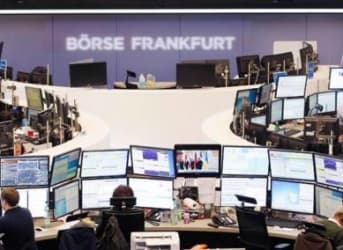In all of the chaos that has accompanied the recent Greek drama in Europe, it is easy to forget that the machinery of the EU continues unabated regardless of the situation in any particular nation. That bureaucratic machinery has been in full force of late with the coming publication of the region’s new Markets in Financial Instruments Directive 2 (MiFID2). The regulation is often compared to the U.S.’ Dodd-Frank Act, but unlike in the States, where new financial regulations are not seriously being considered, MiFID2 promises to add new costs and burdens across the continent.
One of the most interesting aspects of MiFID2 is its scope. Traditionally the financial crisis in 2008 was blamed largely on the actions of banks and financial firms. Europe has started to look beyond the traditional definitions though and is searching for potential risks to the economy in other sectors. One such sector according to the region’s financial regulator is the energy market. Energy markets in Europe and around the world trade vast amounts of energy commodities between different markets based on prices driven by supply and demand. Traditionally, those markets have not been seen as a threat to the financial system and, as a result, very limited capital has been required to trade in the markets. Now all of that is set to change. Related: Norway Has Nothing To Fear From Oil’s Downturn
The MiFID2 regulation has the potential to radically reshape European energy markets. Currently markets in Europe are a reflection of the continent itself with predominantly national markets that are only now starting to be linked by transnational pipelines and cables. The 28 EU member states are being slowly pushed towards national integration in the energy markets by EU authorities, and MiFID 2 will come onto that evolving market and require collateral for energy trades as well as position limits. This is a major change from the original MiFID, which had specific exemptions the energy industry was able to take advantage of.
These changes to the market and others will likely wreak havoc and result in increased costs for consumers and businesses across Europe, according to utility companies and energy watchdogs. In the medium term, the business of energy trading is likely to be less lucrative which will result in an exodus of energy traders and less efficient energy markets across the continent. Related: BMW Going All-Electric
The new MiFID has been in the works for years and has evolved over time, but the final set of regulations appears to be quite stringent, based on industry comments. With that in mind, it’s uncertain what effect the new regulations will have on various international energy projects in Europe such as the new pipeline web that is supposed to be built in Eastern Europe to break the Russian energy stranglehold. Russia currently supplies about 27 percent of the gas feeding the EU, and the new pipelines have important geopolitical value to the Bloc. Given that fact, it’s hard to imagine construction on the pipelines being cancelled.
Yet to the extent that energy traders exit the market and energy costs increase as a result of the MiFID 2 regulations and future carbon regulations, it could lead to lower demand and supply of energy commodities which, in turn, might make some of the proposed projects uneconomical. It is very difficult to manage all of the national deals and politics surrounding energy in Europe, and as the MiFID 2 regulations make moving energy less profitable, private operators may bow out of the various planned pipelines. Related: Decline In U.S. Oil Production Accelerates
That would leave the fate of the EU’s energy security in the hands of governments and bureaucrats. In turn, that would likely mean fewer pipelines that are completed more slowly and greater long-term dependence on Russia for energy supplies. None of this is what the EU wants to see, but that does not matter as the long-term consequences of MiFID 2 may be unavoidable.
By Michael McDonald of Oilprice.com
More Top Reads From Oilprice.com:
- Aussie PM Ousted As Commodities Pressure Proves Too Much
- OPEC Lowers Global Demand Growth Expectations For Oil In 2016
- OPEC Is Winning The Price War Says IEA


















